Cloud-Based Manufacturing: A Game-Changer for SMEs in Morocco
)
Across the globe, manufacturers are being challenged to reimagine production, not just for cost and speed, but for agility, sustainability, and real-time control. In Morocco, a new paradigm is taking shape, cloud-based manufacturing, paving the way for small and medium-sized enterprises (SMEs) to grow without the weight of heavy infrastructure.
By shifting essential operations like product design, scheduling, and inventory management to the cloud, Moroccan manufacturers are stepping into a future where smart systems drive scale and precision, without demanding upfront capital.
What Is Cloud-Based Manufacturing?
At its core, cloud-based manufacturing refers to the migration of traditional production processes to the cloud. Using remote servers, businesses manage design files, schedule production, track inventory, and sync operations virtually.
This model is particularly transformative for SMEs, allowing them to run leaner operations, access cutting-edge tech like AI in manufacturing industry, and stay in sync with supply chains across borders, without the costs of on-site IT infrastructure.
In the Moroccan context, this shift is more than a tech upgrade. It’s a strategy. One that lets local manufacturers remain competitive in regional and global markets.
How Cloud Computing Is Transforming Manufacturing in Morocco?
From Casablanca’s textile hubs to emerging food processing zones, cloud computing in manufacturing is enabling companies to move faster and think smarter. Moroccan SMEs are using cloud platforms to:
-
Identify bottlenecks in future mobility and production
-
Sync operations across sites and suppliers
-
Automate routine tasks to reduce manual errors
According to research by Smart Manufacturing in the Cloud, real-time data access from cloud systems can reduce repetitive processes and boost decision-making agility. For Morocco’s fast-modernising industrial sector, this agility is a game-changer.
Laying the Digital Foundation: Key Technologies in Play
Cloud-based manufacturing isn't a standalone solution; it works best as part of an ecosystem in Morocco that includes:
-
IoT sensors for real-time machine diagnostics
-
AI algorithms to predict material shortages or system failures
-
Smart manufacturing systems that self-adjust to fluctuating demand
These technologies don’t just optimise production; they reduce waste, lower energy use, and extend machine life, all crucial for Morocco’s push towards sustainable industry growth.
WAM Morocco and the Industrial Innovation Wave
As digital adoption grows, platforms like WAM Morocco are central to the country’s manufacturing evolution. By connecting industrial suppliers, technology vendors, and future mobility providers, WAM Morocco offers SMEs a one-stop gateway to innovation, helping them transition into smart manufacturing systems with ease and confidence.
AI in Manufacturing: From Prediction to Precision
AI is redefining how Moroccan factories operate. From detecting equipment faults before they happen to automating quality checks, AI in manufacturing industry is helping businesses stay ahead of problems, not just react to them.
Take a local electronics firm in Tangier that implemented AI-driven inspection tools on its assembly line. Not only did it reduce error rates, but it also improved worker safety by flagging hazards in real time. These kinds of integrations are fast becoming the norm, especially when backed by a scalable cloud-based ERP for manufacturing.
Smart Manufacturing Systems Meet IoT
The real power of cloud manufacturing is in integration. Smart manufacturing systems connected to IoT devices enable seamless communication between machines, systems, and teams.
In Morocco’s automotive sector, for instance, manufacturers are using IoT sensors to monitor equipment conditions while simultaneously adjusting production schedules based on cloud analytics. This interconnected setup leads to faster turnarounds, fewer defects, and better energy management.
Making Manufacturing Execution Systems Work
A robust Manufacturing Execution System (MES) acts as the nerve centre of the factory, bridging the gap between planning (ERP) and execution. In Morocco, MES platforms are gaining traction as manufacturers seek more control over quality, compliance, and costs.
With real-time dashboards, MES helps teams track raw materials, stop production when defects arise, and minimise waste. Studies suggest MES adoption can cut rework and idle time significantly.
Why Cloud ERP Is a Gamechanger for Moroccan SMEs
For SMEs, cloud-based ERP offers a way to consolidate data, streamline workflows, and reduce reliance on expensive on-site tech. From managing finances to forecasting inventory and fulfilling orders, everything happens on one connected system.
Moroccan SMEs, especially in the textiles and agri-processing sectors, are adopting cloud ERP systems to:
-
Gain visibility across functions
-
Reduce server maintenance costs
-
Access flexible pricing and scalability
This democratises access to advanced tech that was once limited to large factories.
Real-Time Data Access = Better Decisions
With cloud-based dashboards, managers can see what’s happening on the factory floor in real time, whether they're in Rabat or on the road. This data visibility means fewer stockouts, faster procurement cycles, and more confident planning.
One report on ResearchGate even notes that companies with real-time inventory tracking saw a 30 per cent reduction in stock shortages.
Savings and Flexibility, No IT Headaches
Instead of investing in physical servers and large IT teams, SMEs use subscription-based platforms, spreading out costs while gaining 24/7 vendor support. This operational flexibility is key, especially for growing manufacturers seeking to pivot fast.
Scalability Without Complication
One of the biggest perks? Cloud ERP systems scale without the need to install new hardware. Whether it’s expanding production lines or launching in new cities, businesses can ramp up quickly without compromising efficiency.
Speeding Up Time-To-Market
Moroccan manufacturers are under pressure to bring products to market faster. By reducing deployment times and enabling instant feature testing, cloud ERP solutions have trimmed the order-to-cash cycle by up to 30 per cent (Eventura), giving SMEs a much-needed edge.
Better Supplier and Customer Collaboration
Cloud-based systems also improve transparency across supply chains. From real-time order tracking to accurate demand forecasts, they align internal teams with suppliers and customers, helping SMEs react swiftly to disruptions or changes in order volume.
Sector Spotlights: Where the Cloud is Taking Off-
Textiles: Shared spinning lines and cloud-monitored dyeing systems ensure uniformity and reduced rework
-
Electronics: Dashboard-led circuit assembly shortens lead times
-
Food processing: Remote monitoring of storage temperatures and packaging integrity improves food safety
According to The International Journal of Advanced Manufacturing Technology, this cross-sector collaboration strengthens knowledge sharing and resource optimisation.
A Digital Future Rooted in Local Strength
As Morocco continues to invest in industrial digitalisation, cloud-based manufacturing offers a foundation for growth, inclusion, and competitiveness. From improved cost efficiency to rapid innovation rollouts, SMEs are reaping the benefits.
By integrating AI, IoT, MES, and cloud ERP, manufacturers aren’t just modernising, they’re future-proofing.
With platforms like WAM Morocco streamlining access to suppliers, the path from prototype to production is shorter than ever.
For Morocco’s industrial future, the cloud isn’t just a solution, it’s a strategy.
Here’s the rephrased FAQ section, now fully aligned with the Gulfood editorial tone, clear, professional, empowering, and inclusive. I've retained the primary and secondary keywords, added a Moroccan flavour where relevant, and ensured everything flows with the rest of your revamped blog.
FAQsQues: How does cloud-based manufacturing boost efficiency?
Ans: It streamlines operations, reduces manual errors, and speeds up production with real-time data and automation, ideal for fast-moving SMEs.
Ques: Which cloud ERP tools are best for SMEs?
Ans: Popular picks include NetSuite, Microsoft Dynamics 365, and SAP Business ByDesign, all offering finance, inventory, and supply chain features in one place.
Ques: How do smart manufacturing systems work with the cloud?
Ans: They connect machines and data through IoT sensors, enabling real-time adjustments and reducing downtime.
Ques: What’s AI’s role in manufacturing cloud systems?
Ans: AI in the manufacturing industry helps predict failures, optimise schedules, and automate quality checks, making production smarter and faster.
Ques: Is cloud computing secure for SME data?
Ans: Yes. Most platforms offer encryption, compliance with global standards, and 24/7 monitoring, keeping data safe without in-house IT teams.


